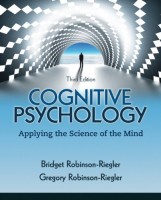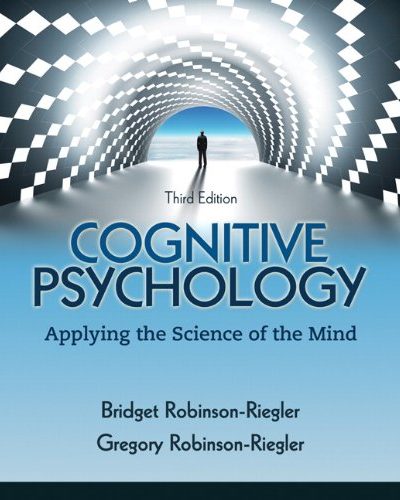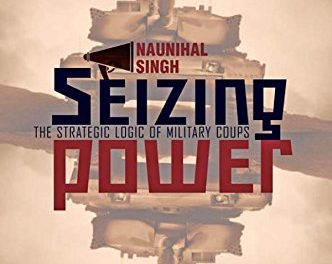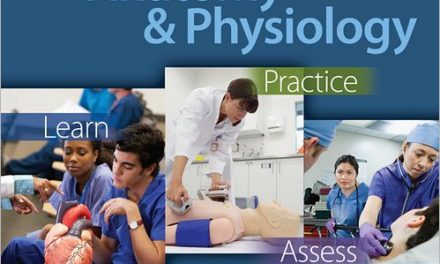 Editors: Bridget Robinson-Riegler, and Gregory Robinson-Riegler
Editors: Bridget Robinson-Riegler, and Gregory Robinson-Riegler
Publisher: Pearson – 602 pages
Book Review by: Paiso Jamakar
This book is about cognition or how we think. We seldom think about how we think until something goes wrong, Bridget and Gregory Riegler point out.
What has gone wrong in your life that is related to your thinking? And what were the short-term and long-term negative (or positive) consequences of those actions?
Do you forget where you kept your car keys?
Do you remember faces but cannot verbalize people’s names?
Can you remember ideas you discussed with someone, but not when and where you met?
Have you thrown out the shelled nuts into the garbage can and started eating the shells?
These are just a few examples. On higher orders of thinking (not just multi-tasking at a given time), some people can focus on multiple projects and get them all done successfully and on schedule. But I personally find it difficult to focus on more than one project to get the results I want. Perhaps this is because I set high expectations on myself.
This book on cognition, or more broadly, cognitive psychology as a science, can help you understand the mechanics of thought. It can help you better understand your own self and others in your life so that you can improve your current you into a better you tomorrow, as well as enhance your relationships with family, friends, and others.
At the outset, the authors define cognitive psychology and why we should study cognition: “Cognitive psychology is the sub-discipline of psychology that employs the scientific method to answer fundamental questions about how the mind works. By using controlled research (mostly experiments) cognitive psychologists attempt to explain the thinking processes that we use every day.” They go on further to write that problems in cognition, such as the ones we mention above, are analyzed and looked at technically, in order to arrive at answers.
So why should we study cognition? The Rieglers point out that it is to gain a basic understanding of how we think and behave, which is the main purpose of the larger discipline of psychology itself. Can it help us avoid lapses in our thinking, as mentioned above? Perhaps, but you and I need to read more, and to do that, I present to you below an overview of the subjects covered in this enlightening and highly useful book:
- Cognitive Psychology: A Brief History and Introduction
- Perception and Consciousness: Basics of Information Intake
- Mechanisms of Attention: Monitoring and Noticing Information
- Immediate Memory: The Control and Manipulation of Information
- Objects and Concepts: Identifying and Classifying Information
- Basic Processes in Long-Term Memory: Encoding and Retrieving Information
- Autobiographical Memory: Recalling Important Events from Life
- Malleability in Memory: Processes of Forgetting, Editing, and Distortion
- Language I: Basic Issues and Speech Processing
- Language II: Reading and Comprehending Text
- Judgments and Decisions: Using Information to Make Choices
- Problems and Goals: Using Information to Arrive at Solutions
In this book, you will find that the authors:
- Make observations that have solid grounding in research findings
- Explain theories and principles by citing numerous examples from everyday life
- Use a good organizational format to present materials in each chapter:
- An outline of topics at the beginning
- Smaller blocks of text with attractive headings
- Stop & Think feature with tasks for students to do
- Stop & Review feature to help students retain important points in their minds
- Charts and tables that present data from research studies
- Figures that illustrate points
- Photos that bring concepts to life
To get more from this book, go to www.MyPsychLab.com, Pearson’s online resource that helps you save time and improve results. Here’s how:
Videos, Simulations and Experiments – From psychology studies that defined the discipline to videos that help illustrate key concepts, MyPsychLab can help you understand the concepts in the book, Interactive simulations and experiments let students experience psychology for themselves.
Assessment – Automated grading offers immediate feedback on quizzes and assignments, and a gradebook allows both students and instructors to monitor student progress throughout the course.
Pearson eText – Just like the printed text, students and instructors can highlight and add to their own notes. Students and instructors save time and improve results by having access to an interactive text online, where they can click to relevant MyLab material right from the book!
To order this book with MyPsychLab access at no extra charge, use ISBN 0-205-17674-7.
All in all, this is a great book on cognitive psychology.
Bridget Robinson-Riegler is affiliated with Augsburg College in Minneapolis, Minnesota.
Gregory Robinson-Riegler is affiliated with the University of St. Thomas in St. Paul-Minneapolis, Minnesota.







